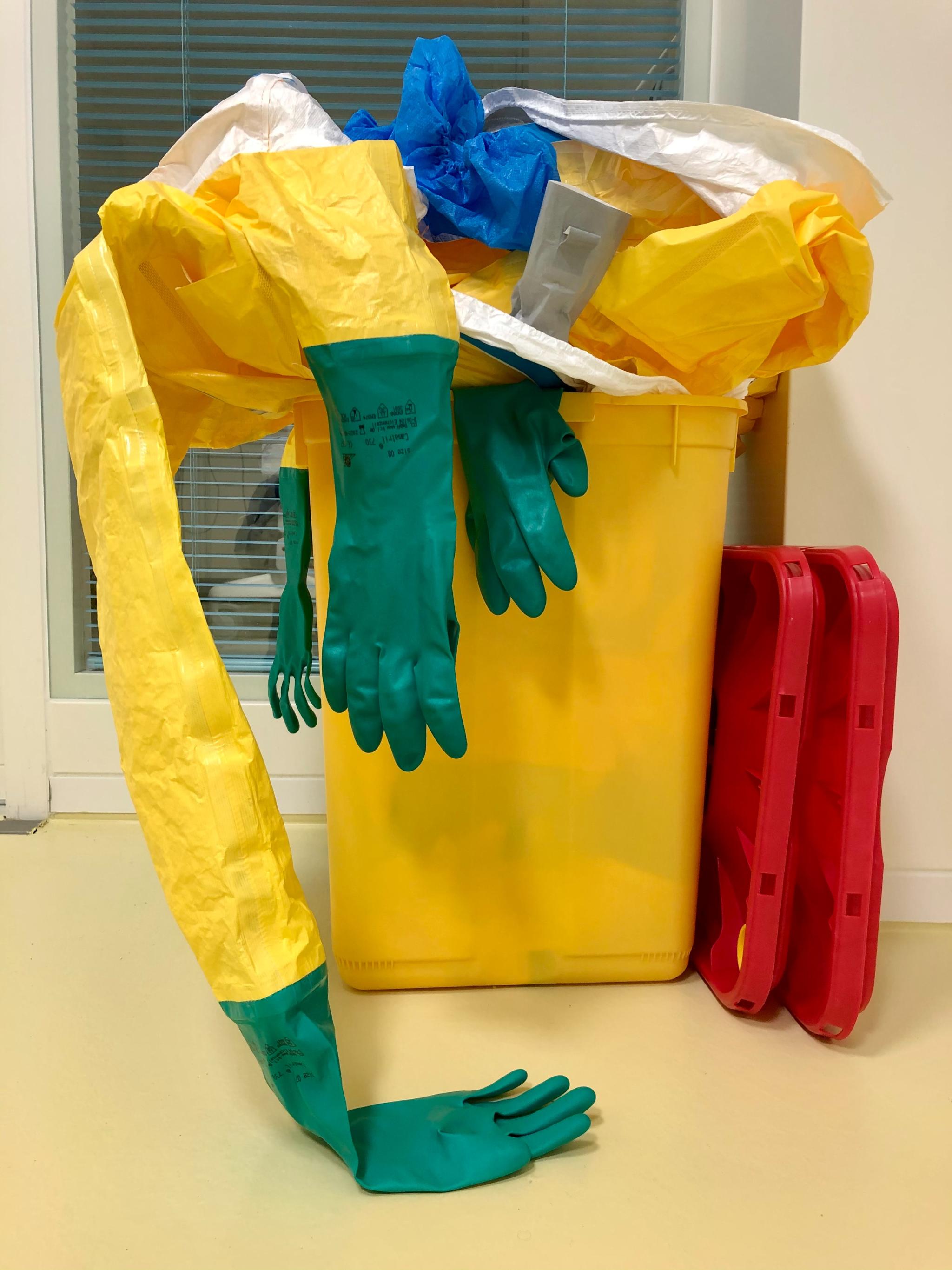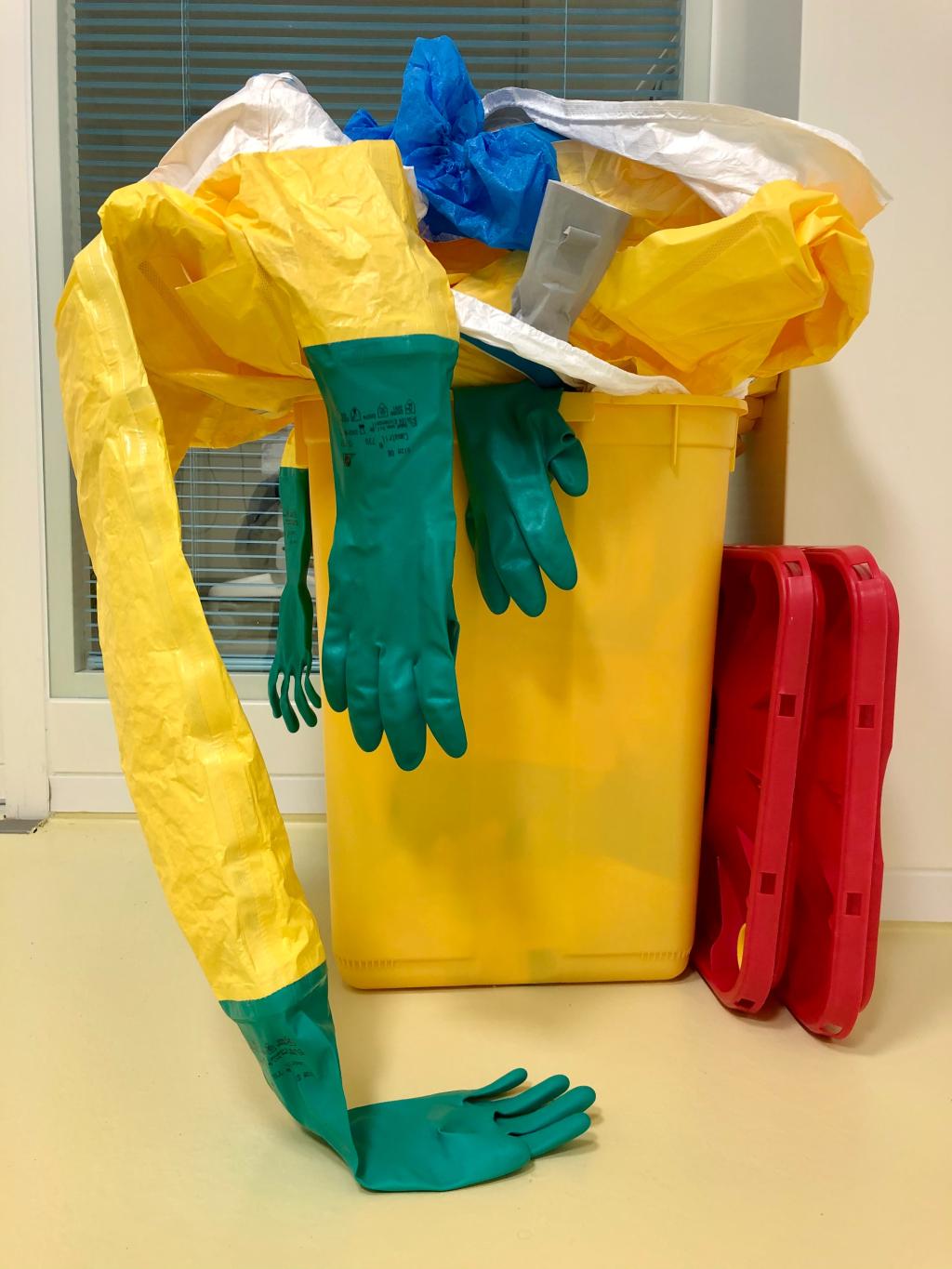Picture this: seven garbage bags of waste generated per intensive care patient every single day. That is just a fraction of the environmental impact hospitals yield. Yet, circularity holds the key. But how do we achieve this without compromising the quality of healthcare?
This Sunday it is Global Health Day, a day to think about the interconnectedness of human health and environmental well-being. And a day also to thank all people in healthcare working passionately to make their hospitals or other healthcare institutions sustainable.

Foto: Maria Koijck
Commitment to sustainable healthcare
The current climate crisis stands as the paramount threat to public health. In the Netherlands, the healthcare sector accounts for 7% of the national carbon footprint and 4% of waste. In delivering care, the sector contributes to the climate crisis, environmental degradation, and an escalating demand for healthcare. It's this very paradox the healthcare industry is striving to break. Through initiatives like the Green Deal “Samen Werken aan Duurzame Zorg” (Working Together for Sustainable Healthcare), stakeholders commit to pursuing sustainable healthcare from 2023 to 2026.
Among them, Nicole Hunfeld (Erasmus MC), Jan Carel Diehl (TU Delft), and Erik van Raaij (Erasmus University Rotterdam) embark on an interdisciplinary collaboration to make hospitals as circular as possible. They aim to revolutionize waste management practices, enhance procurement strategies, and implement innovative recycling solutions, all while maintaining the highest standards of patient care.

The time is now
Amidst the COVID-19 pandemic, the disposable culture within hospitals became more prevalent, with bins overflowing with single-use protective gear. "Sustainability efforts were put on hold," reflects Hunfeld on that period. Moreover, there was significant unpredictability in supply chains, highlighting the imperative for circularity. Luckily, once the dust of the pandemic settled, an enthusiastic interdisciplinary team sprang into action. "Now is the time to reduce the ecological footprint of healthcare. For healthy people and a healthy planet," Diehl emphasizes.
Today, there are over 15 green teams in Erasmus MC dedicated to fostering a more sustainable hospital environment. "The national Green Deal 3.0 for Sustainable Healthcare has been signed. We believe achieving a 100% circular intensive care unit by 2030 is feasible. And entire hospitals by 2050.".
Following the R-ladder in the hospital
The teams adopt a holistic value chain approach following the R-ladder of circularity (refuse, rethink, reduce, reuse, recycle, etc.). "We tackle product choices, user behavior, sterilization for multiple uses, and recycling," explains Van Raaij.
However, transitioning to more sustainable alternatives isn't without its challenges. For instance, implementing reusable equipment and sterilization protocols demands careful planning and investment in new infrastructure. Additionally, shifting to eco-friendly medical supplies may pose logistical hurdles and require adjustments to procurement processes. Furthermore, fostering awareness is crucial for the transition towards a circular hospital. "What we truly aspire to is entire departments, the entire hospital, embodying and breathing sustainability."
In conclusion, hospitals aren't merely spaces for healing; they're also agents of change, safeguarding the health of both individuals and the planet. As we celebrate Global Health Day, let's recognize the pivotal role of the healthcare industry in promoting environmental sustainability and its commitment to a greener, healthier future for all.

